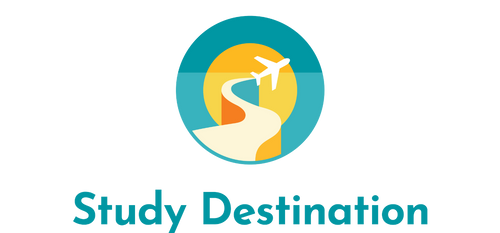Cosmopolitan & Artistic
Voted the world's most liveable city seven years in a row, Melbourne is considered to be one of the places to be in Australia! It has now been named Australia’s most liveable city and the 10th in the world in the Global Liveability Index 2022 . Melbourne achieved a perfect score for education (100/100) and infrastructure (100/100). It also scored highly for Culture and Environment (98.6/100) and Stability (95/100).
With a young and dynamic city centre, beach, sport, art, and music, in short, you will have understood that it gives you the desire. With multicultural and open-minded people, in Melbourne you will find all the nationalities of the world and lots of communities that don't hesitate to mix and party together! A true source of inspiration for artists, walking through the streets will quickly become a game for you as you will discover huge and offbeat graffiti at every corner. Museums and exhibitions of all kinds will also delight you if you love art. If you like music and festivals, you will also be served! Finally, there's no shortage of cool restaurants, cafes and rooftop bars in Melbourne. No matter what your profile is, you will find what you are looking for! Near Saint Kilda beach, on the Yarra River or in the hipster areas of Fitzroy and Northcote: you're spoilt for choice!
Atmosphere & Dynamics in Melbourne
Weather in Melbourne
Melbourne's weather can have several personalities in one day (yes, it does exist)
Winters average 13°C - summers average 26°C
Location
The state of Victoria, Australia.
Ideal time for your arrival to Melbourne
November (just before the summer season).
Things To Do in Melbourne
- Brighton and its colourful little huts
- Saint Kilda beach and the little penguins at dusk
- CBD graffiti
- Eureka tower
- Luna Park
- The Royal Botanic Garden
- National Gallery of Victoria
- The Fitzroy district
- Federation square
- Queen Victoria market and South Melbourne market
- The Shrine of Remembrance
- Flinders street
- The Immigration Museum
- Royal Exhibition Centre
- The banks of the Yara
- State Library of Victoria
Events Not To Be Missed in Melbourne
Melbourne Cup (horse racing)
FOOTY Grand Final
Melbourne Fashion week
Australian Open
Formula 1 Grand Prix
White Night
Melbourne International Festival of the Arts
Rainbow Festival
St Kilda Festival
Moomba Festival
Cost of Living in Melbourne
A little cheaper than Sydney, Melbourne is still a big city. Although accommodation and hostel prices may be a little more affordable in some parts of the city, transport is a little more expensive: here's a quick rundown so you can see for yourself!
Rent in Melbourne
For a youth hostel account for between $15 and $40/night per person depending on the season, the room (private or public) and the type of accommodation.
(e.g., dormitory of 4, 6, 12...) and the qualitý/ location of the hostel.
Discover our Guide with the best Hostels in Melbourne
For a room: from $150/week (shared room) to $250/$300/week (single room) For a studio: expect between
Transportation in Melbourne
Melbourne has the second largest train network after Sydney, with dozens of tram lines (some of which are very old) and even more buses to get around the city smoothly. Bicycles are also available!
Concerning the price of the transport, count $4.60 for a "trip", but contrary to Sydney here no variation of price according to the distance! It's the same for everyone! Once your "Myki Card" is validated, you have two hours to make as many round trips or connections as you want for this price.
Myki is your ticket to ride on Metro, trams and Buses. Simply keep your myki topped up and carry it with you, and you’ll always be ready to travel. Just touch on and off when you travel
and myki will automatically calculate the lowest fare for you.
You can buy a Myki at:
- at Metro premium stations
- at myki machines at all Metro railway stations and some accessible tram stops and bus interchanges
- at 7-Eleven stores or one of 800 retailers across Melbourne
In addition to having lines that run all night on weekends (96 and 86), you'’ll also find FREEZONE trams in the CBD. Always nice to be able to travel for free.
Recreation and Outdoor Activities in Melbourne
Cinema: $12-$2
Restaurant: $8-$3
Drinks: $8 a pint and about $15 for a cocktail.
Labour Market in Melbourne
In Melbourne, jobs in the hospitality and construction sectors are the most popular, especially if you are a backpacker or student! If you can speak English and are motivated, you should have no trouble finding a job. However, once again, it all depends on the season!
In December the competition will be tough! So don't hesitate to go outside the CBD and look at the offers in the surrounding areas. If you know people in the area, use your network too! Facebook groups can also be a good way to find jobs.
Why we love Melbourne:
Its cosmopolitan and multicultural aspect
Its seasons that remind us of Europe
Its relaxed and funky atmosphere
Its artistic soul and its small bars and cafés in the underground areas
The love for sport and fashion
Its location makes it a good starting point for a road trip to the east or west.
Why we love it a little less:
A bit of schizophrenic weather (ok for the 4 seasons but it's nice to be warned when they all arrive in the same day) You could start the day needing a coat, jumper and umbrella, then by the end of the day you will wish you had shorts and t shirt on!
Competition for high season jobs
High rental costs in the CBD
Surfing is not possible on the beaches near the centre
Winter in Melbourne ... it’s cold and most homes don’t have central heating like in Europe!
Contact us
Study in Melbourne
Is Melbourne a good place to study?
Melbourne is a superb choice for international students, offering:
- Top-Tier Universities: Home to world-class institutions renowned for academic excellence.
- Cultural Hub: Vibrant arts, music, and culinary scenes, creating a dynamic cultural environment.
- Quality of Life: High standard of living with diverse neighbourhoods, parks, and recreational options.
- Employment Opportunities: Strong job market and part-time work opportunities for students.
- Safety and Accessibility: Safe and well-connected city with an efficient public transportation system.
- Diversity and Inclusivity: Embraces cultural diversity, fostering a welcoming atmosphere for students.
Is it expensive to study in Melbourne?
Yes, studying in Melbourne can be expensive for international students. Key expenses include tuition fees, accommodation, living costs, and other miscellaneous fees. However, the city's vibrant lifestyle, quality education, and diverse opportunities often make it a worthwhile investment. It's crucial for students to budget wisely, explore potential cost-saving options, and consider part-time work opportunities to manage expenses effectively.
Is it better to study in Sydney or Melbourne?
Deciding whether to study in Sydney or Melbourne depends on your preferences:
Sydney:
- Known for iconic landmarks and vibrant lifestyle.
- Strong business and innovation hubs.
- Variety of world-class educational institutions.
- Higher living costs compared to some cities.
Melbourne:
- Renowned for cultural diversity and arts scene.
- Quality education with globally recognized universities.
- Competitive job market with ample part-time work opportunities.
- Generally considered more affordable than Sydney.
How much does a student need to live in Melbourne?
The cost of living for a student in Melbourne typically ranges from AUD 20,000 to AUD 25,000 per year. This includes accommodation, food, transport, and other miscellaneous expenses. Accommodation costs vary based on whether you choose university housing, share accommodation, or rent independently. It's important to budget for essentials like groceries, public transport, and personal expenses.
Can international students work in Melbourne?
Absolutely! International students in Melbourne are allowed to work part-time during the academic semester, up to 48 hours per fortnight, and full-time during scheduled breaks. This provides students with the opportunity to gain work experience, supplement their income, and enhance their overall learning experience.
It's important for students to be aware of visa regulations and ensure compliance with work limitations. Many students find part-time employment in sectors such as hospitality, retail, and services.


